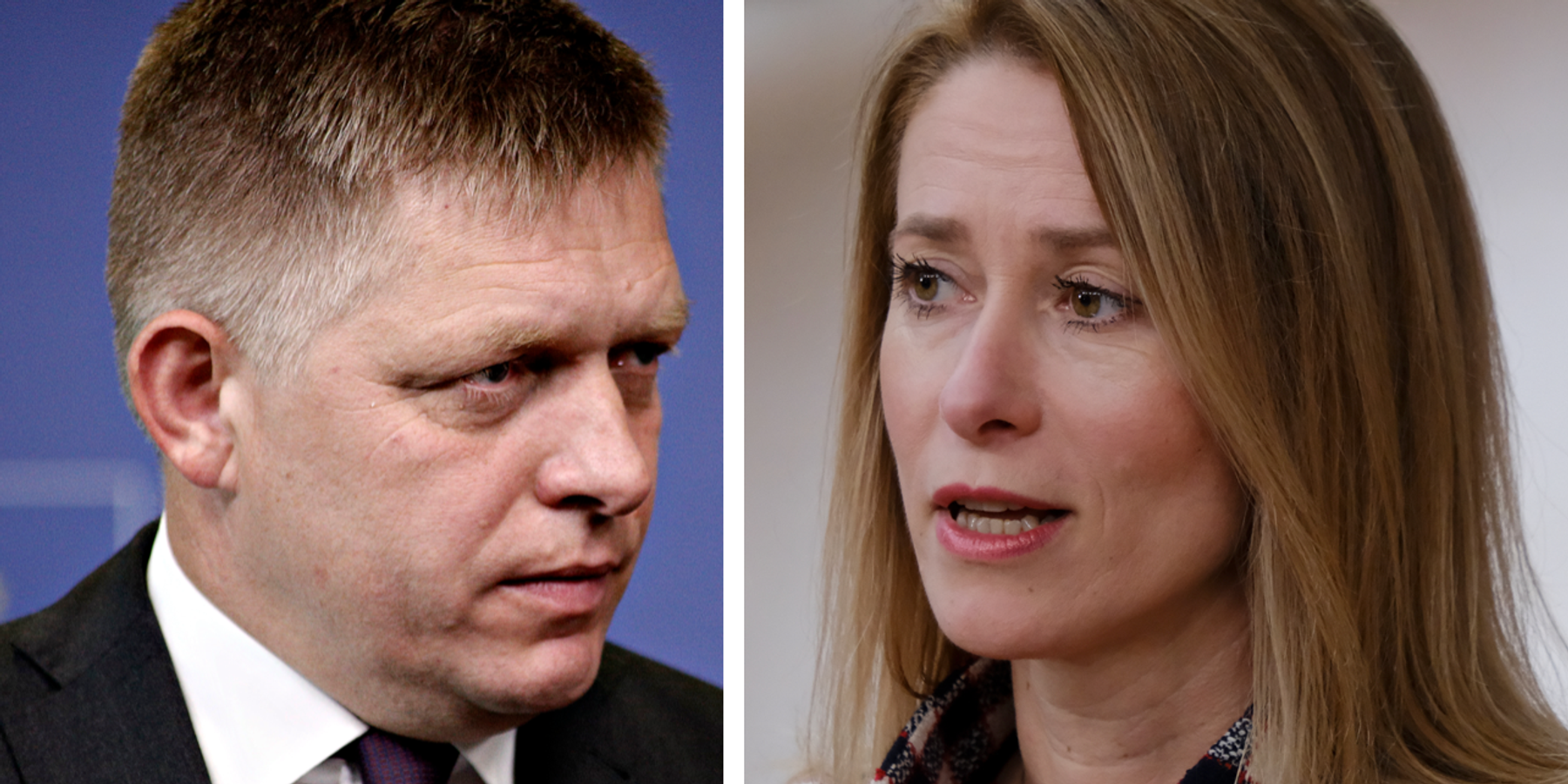The latest warning from the EU High Representative on foreign policy Kaja Kallas — implying consequences for the member and candidate states if their leaders attend Moscow’s Victory Day parade on May 9 (dedicated to the defeat of the Nazi Germany in the WWII) — is a stark reminder of how the Union is dangerously overstepping its boundaries.
While Kallas did not threaten any specific punishments if her warning is ignored, she said any participation in Moscow’s parade would “not be taken lightly” by the EU, suggesting diplomatic or political repercussions against dissenting countries.
Some leaders did interpret her words as diplomatic blackmail and predictably, it sparked backlash. Slovakia’s Prime Minister Robert Fico rebuked Kallas and affirmed his own plans to attend the Moscow celebrations honoring the defeat of Nazism. “The year is 2025, not 1939,” Fico declared.
Fico’s stance reflects a core principle of the European Union: foreign policy remains the prerogative of member states under the Treaty on European Union (Article 24), not the bureaucracy in Brussels. The EU’s foreign policy framework does not grant the High Representative the ability to unilaterally sanction or penalize member states for their foreign policy choices. In that context, Kallas’ statement can be seen as an attempt to encroach on Slovakia’s right to determine its own foreign policy actions.
The Brussels’ warning might be particularly ominous for Serbia, whose president, Aleksandr Vucic, was also invited to Moscow. Unlike Slovakia, Serbia is not a member of the EU, but it is a candidate. As the EU increasingly behaves like a geopolitical bloc, it expects an unconditional foreign policy alignment from those eager to join it.
Serbia has long balanced its ties between the EU and Russia, a pragmatic stance given its history and geography. Yet the Kallas faction pushes the Balkan nation to choose a side — EU’s side — or essentially risk membership. The EU can use Belgrade’s status to arm twist it into submission, or erect hurdles on its path, if not freeze the process altogether.
There is a precedent for that: the suspension of Georgia’s candidate status, ostensibly for democratic backsliding, which some experts, however, believe to be merely a cover for the real reason — retaliation for Tbilisi’s failure to fully join the EU’s sanctions against Russia (there is some credence to that argument given how obsequiously the EU treats Azerbaijan, the real dictatorship next door to Georgia ).
This isn’t integration; it’s coercion. And, when it comes to Serbia, it’s also a dangerous game. By criminalizing attendance at a parade commemorating the defeat of Nazi Germany, the EU risks alienating the nation which lost over a million lives in World War II fighting against the Nazis. To threaten them now over a symbolic gesture is not just tone-deaf — it can be perceived in Serbia as forcing a betrayal of its own history as a price of joining the EU.
Apart from Kallas’s overreach, the collective Brussels’ approach also demonstrably lacks pragmatism and realism in dealings with Russia, and in particular, to bring the war in Ukraine closer to an end. Yes, Russian President Vladimir Putin will use the celebrations in Moscow, particularly the presence of the foreign leaders, as a massive photo op. He will try to bridge the Soviet Union’s victory in the WWII with the war in Ukraine which he consistently frames as a “war against the Nazis.”
That said, however, trying to impose a boycott of the event on all EU members and candidates would amount to no more than a form of virtue signaling — without discernible gain for the EU. If Kallas and her allies indeed are worried about handing Putin a diplomatic victory, then their own hawkish ineptitude is already delivering it to him. They are fueling the narrative, not only in Moscow, but in Europe too, of unelected Brussels bureaucrats dictating foreign policies to sovereign nations, running roughshod their historical and political sensitivities.
The prospect of Fico and Vucic’s travel to Moscow echoes the Brussels meltdown over earlier attempts at diplomacy by Hungary’s Prime-Minister Viktor Orban. When Orban visited Moscow in 2024 and met with Putin, instead of learning about what Moscow’s bottom-line on Ukraine was, the EU tried to sabotage Hungary’s rotating presidency of the European Council.
Furthermore, when the U.S. President Donald Trump started his own talks with Moscow, the EU was left scrambling when it could have used Orban’s diplomacy, which was already a few months ahead of Trump’s efforts.
And yet, the EU is repeating the same mistake again — bullying its own members instead of using their outreach to at least explore ways in which the EU could move towards the end of the war in Ukraine, something that its own citizens increasingly expect and demand. As the prominent Cold War historian, professor of the London School of Economics Vladislav Zubok said, by rejecting the diplomacy track, the EU-guided Europe makes itself less, not more relevant in international politics.
- Is EU foreign policy chief Kaja Kallas in the right job after all? ›
- Will EU stand in the way of Russia-Ukraine ceasefire? ›
- Kaja Kallas' shocking lack of historical literacy | Responsible Statecraft ›
















